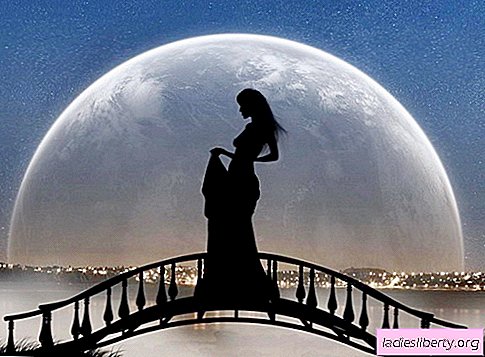
Psychologist Carl Gustav Jung developed the concept of archetypes as original patterns or patterns of behavior stored in the collective unconscious and manifested in many people. Tales, myths, dreams - all this reflects archetypes, so the plots often repeat each other.
The archetypes of women personify the images of the ancient Greek goddesses. To make it easier to understand these patterns of behavior and understand which of the goddesses appears in you, you should consider all of them. In each woman, up to four archetypes can be enclosed, which are successfully combined with each other. But it should be remembered that the formation of personality is greatly affected by the environment, upbringing and life situations.
Artemis
Women of this archetype feel their integrity and strength, therefore, a priori they are self-sufficient and completely absorbed in self-realization. In relationships, they seek equality, they are more attracted to similar outlooks on life. There is no particular desire for marriage, such women are more interested in neutral friendly relations with the opposite sex. They always know what they want, for what they hate, whom they love, but at the same time they lack a relationship filled with sensuality.
Athena (Minevra)
An archetype whose driving force is strategy, intelligence and practical calculations. Athena is not guided by emotions in resolving conflicts, she is calm and well assesses her abilities to achieve her goals, and is able to learn from her mistakes made in the past.
In relations with men, Athena will not begin to swap her trifles and waste her time on empty romantics and visionaries; she expects equality from the relationship. She is interested in men who have achieved heights in life, who, like her, go to the set goal, despite the difficulties. But having achieved what she wants, she remains alone, as she prefers close relationships to business ones.
Gesta (Hestia, Vesta)
The most holistic archetype with a well-developed inner world, its representatives do not try to express themselves with the help of a career or achievement of goals. Gesta is a very good housewife, because she loves to create comfort and coziness in her home, giving warmth to family and friends. But at the same time, she will not shift responsibilities to other household members, because she herself is pleased with these chores.
Hera (Juno)
A very inconsistent and contradictory archetype, the line of behavior of which is determined by her being married. Hera creates a cult of a man, she raves and lives in marriage, literally blowing dust off her faithful, but at the same time, her children fade into the background. If, for some reason, marriage has not grown together, Juno is in despair from the unrealized potential.
As soon as an acquaintance with a man takes place, Hera loses interest in communicating with friends and reduces him to walks and meetings in pairs. Jealous, but at the same time, having learned about the betrayal, it would be more likely to blame the seducer than her man.
Demeter (Ceres)
An archetype that embodies care for loved ones and selfless returns. For Demeter, a great trauma is the lack of the ability to take care of someone, since for her it is a vital necessity.
With regard to relationships, Demeter refers to men as thoughtless youths who need her support and care, so often her relationship does not add up.
Persephone
An archetype whose personality characteristics are entirely dependent on the conditions of upbringing, but all women of this archetype have a tenacity, humility and passivity. Persephone at any age looks young, this is an eternal girl, requiring care in relation to herself, she is able to bend painlessly under many and at the same time practically does not feel discomfort.
Aphrodite (Venus)
The archetype that conveys all the truly beautiful and sensual that is fraught with feminine nature.
The most powerful feature of Aphrodite is her attractiveness to the opposite sex. Sometimes, even in the absence of a memorable appearance, she is able to drive many men crazy with her charm. At the same time, Aphrodite is open and is given to the relationship without a trace.
Heba (Juventa)
This archetype manifests itself in women who are unable to accept their true age.
She longs to prolong her youth, which sometimes manifests itself in the discrepancy of her wardrobe and behavior with age. She marries when she sees this as a benefit or because of a favorable attitude towards herself, without exchanging feelings for it.
Tyche (Tyuhe, Fortune)
The natures that are characteristic of this archetype have a very contradictory set of qualities, they combine fearlessness before the future with an irresistible desire to control the fate of others. Due to his craving for control, he gradually begins to control a man when building relationships, taking part in all aspects of his life and endeavors.
Nemesis
An archetype with a heightened sense of justice, which tends to endure hardship and force others to do so as a punishment for deviating from the law or religion. Because of its integrity and straightforwardness, it is often not understood by people. He puts men on the podium of holiness or, on the contrary, considers it to be the personification of hypocrisy - all because of the internal perception of the ideal. In choosing a partner, he is guided by the mind, so he is disappointed even before the relationship has become serious.
Hecate (Triodite)
Hecate is an archetype with the most developed intuition and a penchant for everything mystical and occult. It has a weakness for various spiritual practices, often visits sorcerers and magicians without looking at innate intuition, as it is unable to use it. Such a woman is likely to be attracted to a man who will share her interests and provide support in her mystical endeavors.











